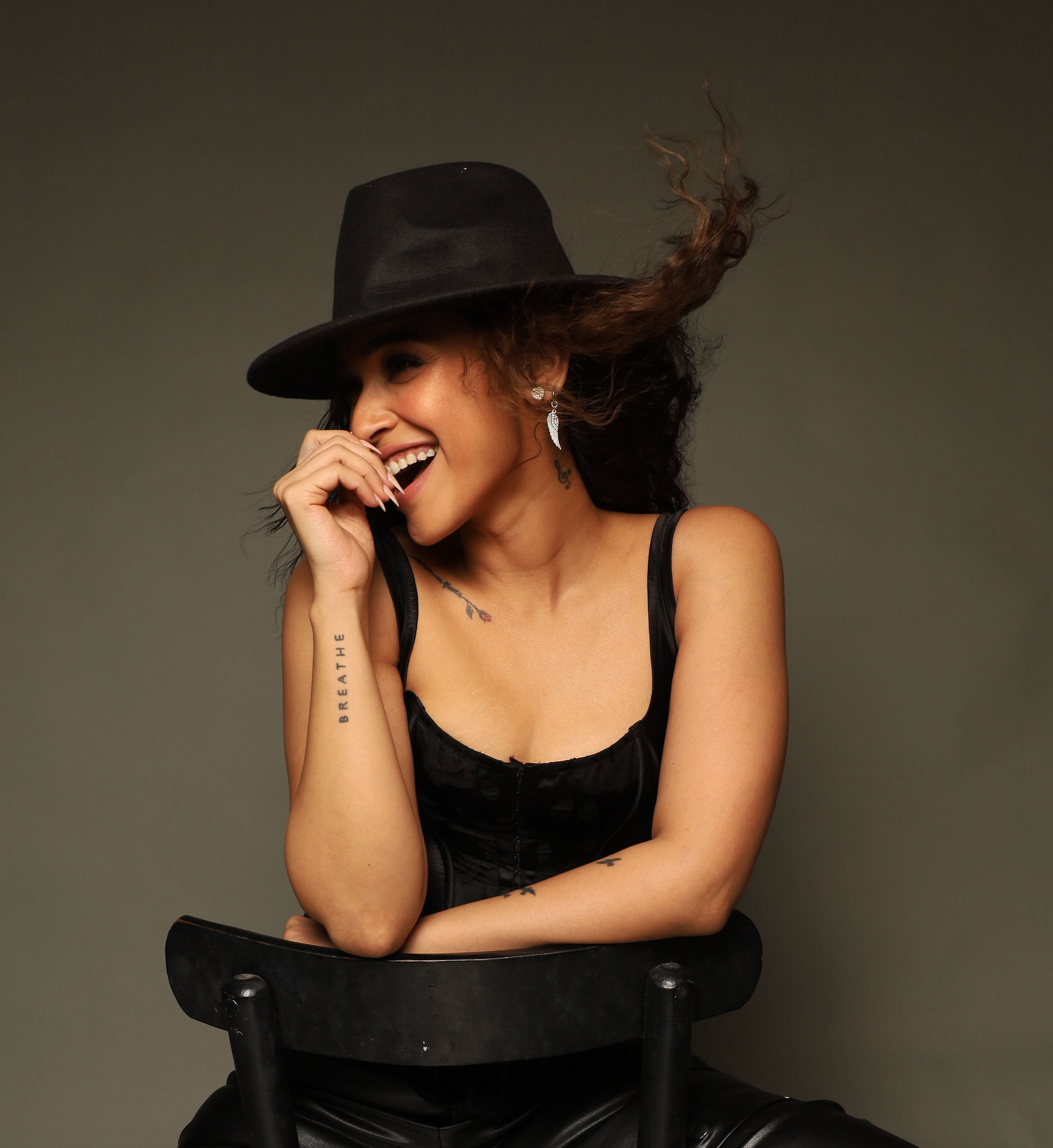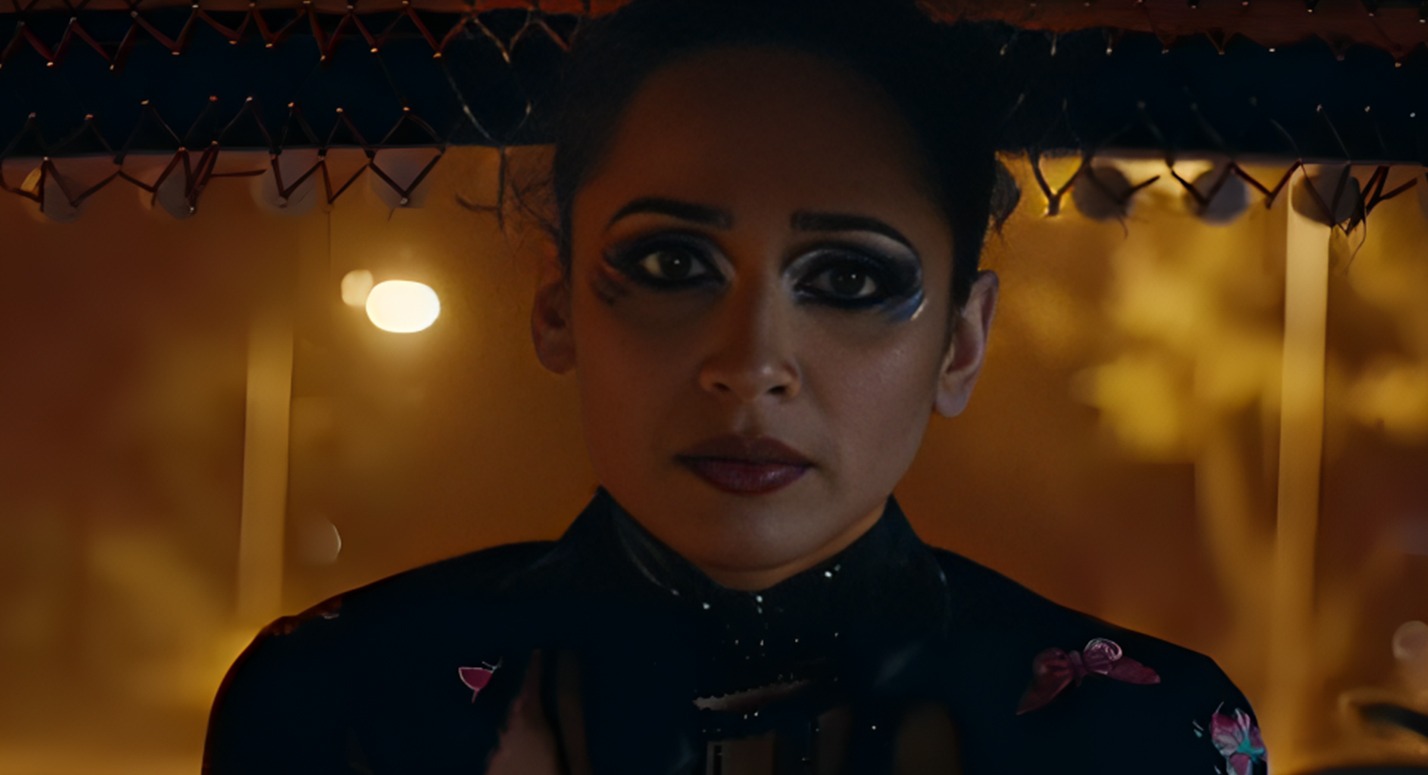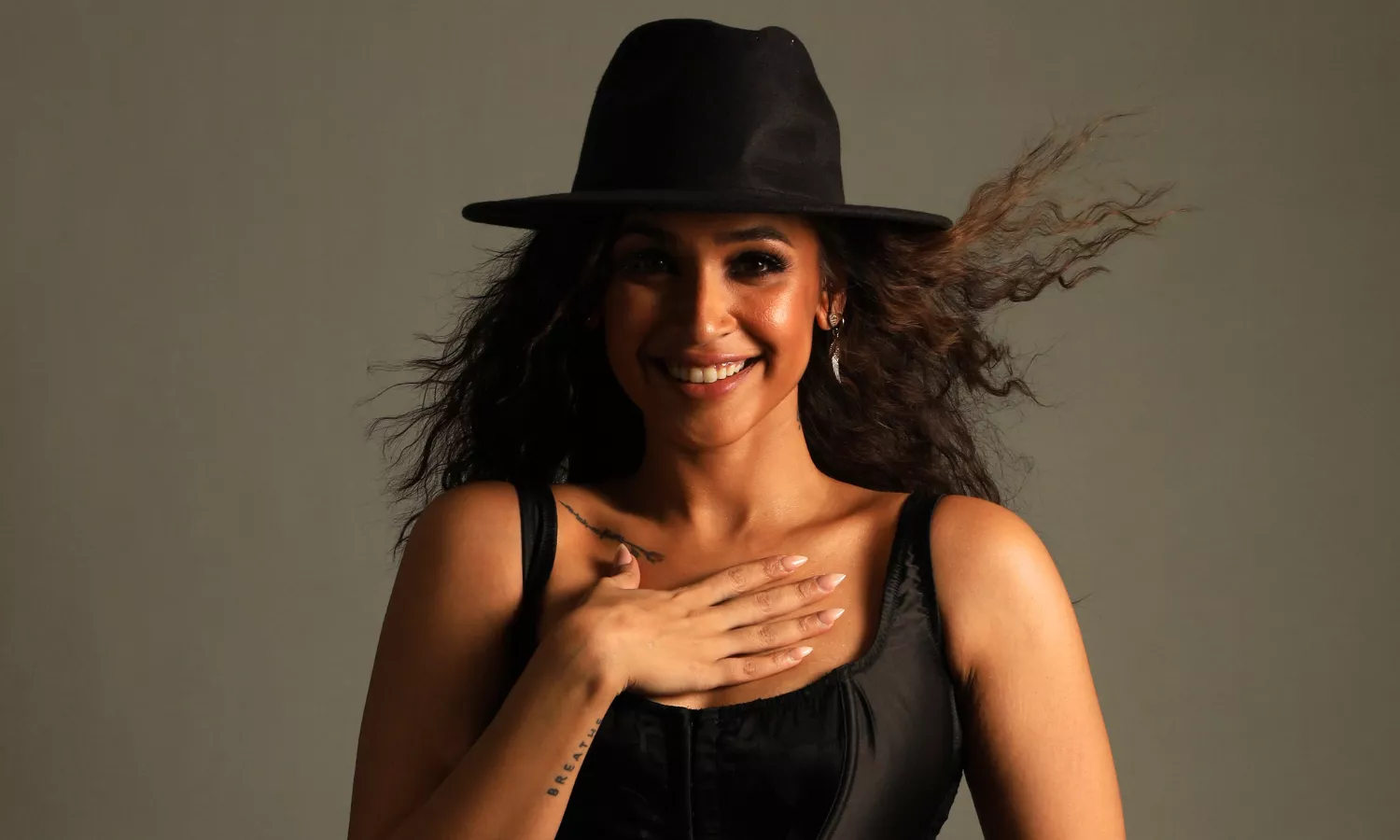Gave it all for 'Wakhri': Faryal Mehmood says film is a tribute to Qandeel Baloch
Actors shed light on importance of women-centric films, and why drama industry seems to have lost its previous charm
KARACHI:Seated comfortably in a chair, Faryal Mehmood smiles as she responds to questions, dressed in an oversized blazer and floral skirt. Her hair is styled to perfection, and her makeup is meticulously done—quite a contrast from the last time I saw her during rehearsals for her PISA performance in Dubai.
Currently, Mehmood is engrossed in promoting her upcoming film Wakhri, fully embracing her role in it. In 2021, she had taken a break from acting, citing the poor quality of scripts she had received. However, this year marks a strong comeback for her with three noteworthy projects: Zaheer Uddin Ahmed's cop drama Chikkar, a cameo in Umair Nasir Ali's film starring Yumna Zaidi titled Nayab, and Iram Parveen Bilal’s Wakhri.

While enjoying a cup of coffee, Mehmood spoke to The Express Tribune about her decision to star in a film inspired by Qandeel Baloch, the importance of women-centric films, and her thoughts on why the drama industry seems to have lost its previous charm.
Express Tribune (ET): The last we spoke, you said you weren’t finding scripts you’d like to work on. What changed with Wakhri?
Faryal Mehmood (FM): I resumed! I received a good script - not just a good but a great script - it was everything I was waiting for. She came and it just saved my life. It was quite a lengthy process [to be cast in the film]; there was an audition, and it took us two to three months for the makers to finalise my selection. It was a lot of work before the film even went on floors.
ET: How heavily inspired is Wakhri by Qandeel Baloch?
FM: The story is about a single mother, who's a teacher. The sole goal in her life is to teach these young girls and she wants to establish a school to achieve that. However, she's having trouble finding the funding for it. Since we know that women are rarely paid heed to in any patriarchal society, she becomes increasingly frustrated. One day, she dresses as a drag and ends up performing at her friend's drag show, saying whatever Noor [Mehmood's character in Wakhri], has been holding on to. Since she looks so mysterious and promiscuous, she becomes unapologetic about her views; the night ends with many recording her stint and she wakes up the next morning to be branded as the latest social media sensation. Her videos were all over the internet!
This is how the film relates to Qandeel; she was our first influencer back when we hadn't defined what an influencer was in Pakistan. When I was prepping for Noor, and I was listening to Qandeel's interviews, I realised she was deeply misunderstood. Whatever she was saying wasn't far from the truth but no one listened to her; I felt horrid because even I didn't listen to her. We just kept on judging her; her clothes, her dialect. We couldn't move past it.
ET: How important is it to tell stories that might fear backlash from certain quarters? What kind of response are you expecting from your Pakistani audience? How did you get into the character of Noor?

FM: This was actually my first question once I was done with the script. I asked my producer, Abid, whether the censor board would allow the film to be released in Pakistan. Will people watch it? They told me that it'd be managed, so we shot the film in a certain way. When I was essaying Wakhri, I kept wondering, how sexy is too sexy? What dialogue would the audience be able to endure and which ones they'd completely reject? This was a very thin line for me to find. So, finally, I tapped into my inner Wakhri and it just worked.
I didn't mimic Qandeel, I didn't perform like she did. I made it my own but some dialogues I got from Qandeel and the audience would be able to recall them. See, the character itself isn't graceful. She comes from a middle-class background, there's only so much she can dress up or shake up her dialect. I've just tried to show it as beautifully as possible. So I'd love for our Pakistani audience to let us know if they were able to digest it.
ET: This is your first time working with a female director in a feature film. Tell us how you found working with Iram Parveen Bilal. 
FM: If I were asked what kind of cinema I would like to work on, I'd say something similar to Joyland; something that is deemed serious, something dark, something real. I wouldn't want to beat around the bush, I wouldn't want the film to have songs, I would just like it to have a message, no matter how difficult the message is.
I came on set for the first monologue we shot for Wakhri, and Iram informed me that she would be asking for retakes until they got the scene just right. Once the first take was finished and I was done and she called cut, she told me she had no notes. It was exactly how she had envisioned me to work on the scene. I realised I understood Wakhri. I can manoeuvre her from here.
On set, we never felt that I was ever unheard. The makers were all about hearing. The DOP and the editor were women. Aarti Bajaj, the editor, had edited the likes of Tamasha and Highway. There was Kanwal on the set. I was just extremely proud of what we had made and then we'd discuss that as well. It was so well executed.
ET: You’ve been one of the stars who had been very vocal about their journey and personal life. Does that influence the project choices as well?
FM: Definitely. I wouldn't even pick up the script if I didn't think it resonated with me or if I was honest with myself. I did some projects right at the beginning of my career that I took up under pressure. I'd do it for someone, not myself. I think I am now at that stage of life where I would never do that. I'd take up a project for myself and no one else. I didn't do a single script in three years. I only worked on Wakhri because I wanted to work on this.
ET: What kind of stories would you like to see in Pakistani cinema? We’ve seen the tide change gradually. The likes of The Legend of Maula Jatt, Gunjal, Kukri, Joyland, Kamli, In Flames, Zindagi Tamasha and Chikkar are proof of it. Do you think our films are now smarter than our dramas?
FM: I completely agree, our films have progressed tremendously. Two banners make films and we all know that they make money, and profits from their films. They make rom-coms and it works well for them. But other people are just as talented, if not more, who want to tell different forms of stories. A lot of people called it experimental cinemas, but I don't agree with the term. Yes, we are expanding into different branches of cinemas and that's much-needed. That's what cinema should comprise.
I haven't watched a drama for years now. But whenever I have had a glimpse of any recent project, I don't recognise any of the actors. Who are these people and why has the situation worsened? Do they know what's an expression? The thing is with television, it has come to influencers. Now, it's in their hands, there are so many girls I do not recognise. I am not someone who's on social media, I have sworn off TikTok, so I don't know who these girls are. I mean, of course, they have a lot of followers, hence they are on television dramas now. But that doesn't mean they can act. If you want to make a watchable drama, you make it with actors, not TikTokers. There is no comparison; actors and influencers are parallel to one another.
If you think influencers would act in a drama and the product would be the same as it was six years ago, then you are mistaken. You have to bring the actors back. People I have worked with onscreen, I never see them in dramas anymore. Where are they? They are not doing films, they aren't doing dramas. Why are we doing this to television just to save some buck? For ratings? I don't have a solution for this, sadly.
See, with films it is different. The only people who can films are the ones who have complete faith in themselves and they have enough funds. When you make a film, you have to be sure of the actors who would play certain characters in your film, that's how investment would work. There'd be no intercession here, there'd be auditions here. Since the audience would have to pay out of their pockets to watch your film, the director has to be sure the cast is likeable. That's why our films have much more to offer. Please start auditioning your actors. The audience should, at least, get their money's worth.
ET: How important is it for the films to be spread out throughout the year, rather than cluttering at the famous Eid slots? 
FM: When I was informed that Wakhri will be the first release of 2024, I was ecstatic! I said, 'Bring it on! Let's start the year with women.' Right after that, we have Nayab, we have yet another women-driven script. We must move the narrative of films towards women as well. Our dramas are ruled by women because it's women who mostly watch television soaps, but we need to drive them to the big screen as well. Our industry had to go through that turmoil to come to women taking control. I think we are headed in the right direction.
Everyone asks me why should people come and watch Wakhri. I said, I just need the women to come and watch Wakhri; it'd be a hit. How many films were made by women and for women? It's a girl's day out kinda thing where you and your girlfriends go and watch Wakhri. I just hope when Nayab, Chikkar and Wakhri do well at the box office, it'll open doors for our female stars, who are immensely talented but are hesitant to take a script outside the box.
Have something to add to the story? Share it in the comments below.


COMMENTS
Comments are moderated and generally will be posted if they are on-topic and not abusive.
For more information, please see our Comments FAQ